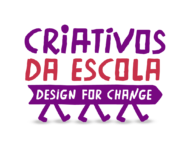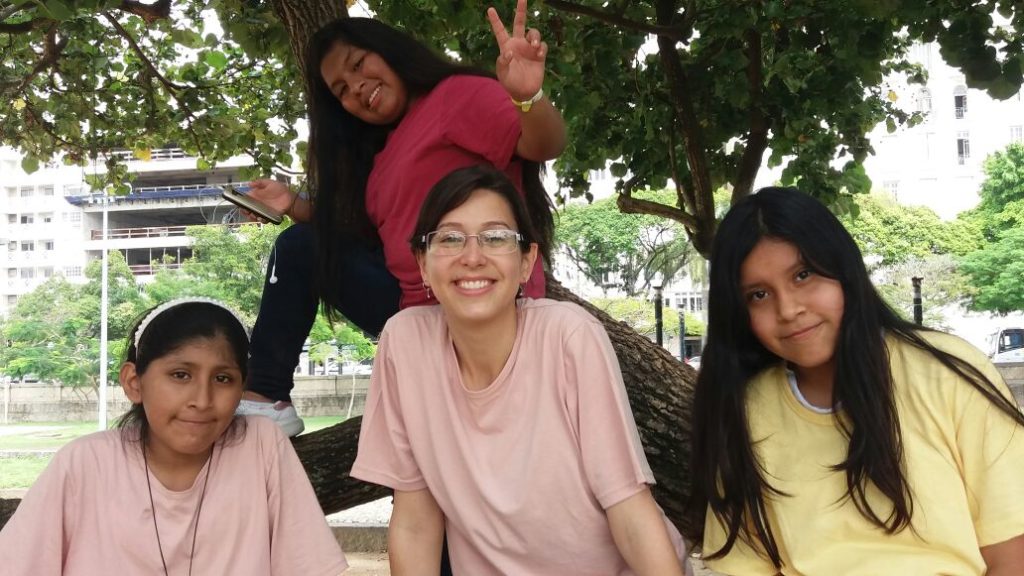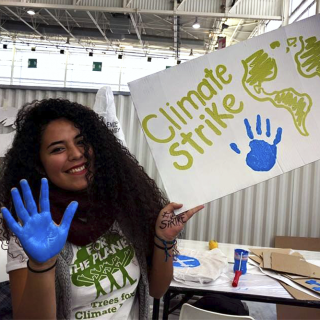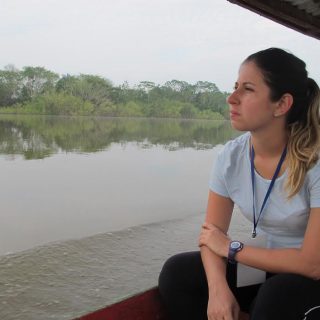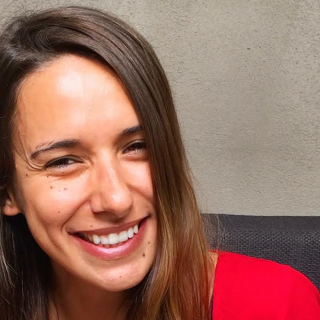It’s not easy being a foreigner. But harder still is feeling like a foreigner in your own land. Concerned about the sense of not belonging expressed by immigrant children at the Infante Dom Henrique / Escritora Carolina Maria de Jesus Municipal School in São Paulo, Bolivian-Brazilian students Thais Jaimes Lopez, 12, Jaqueline Clara Larico Huanca, 12, and Mariana Victoria Calle Quispe, 13, decided they had to do something. About 20 percent of the students in the school come from immigrant Bolivian families like theirs, and, as Quispe explains, “the idea for the project came up because there were too many Bolivian cliques that would play on their own during recess, since they were scared of being discriminated against.”
To address this problem, the girls decided to offer Spanish classes to Brazilian students in 5th through 8th grades. They convinced a Bolivian friend, Carlos Javier Mamani Yauli, 13, to help lead the activities. They also asked two teachers for support in negotiating a space for the classes with the school, publicizing the classes, and planning the meetings. And the initiative was a huge success! In all, over 70 students expressed interest, more than double the 30 available slots.
“It took us a whole month to plan the first class. Since Easter was coming up, we researched the symbols of the holiday in Bolivia, the similarities and differences [between its observation in Bolivia and in Brazil],” recalls Mariana Victoria Calle Quispe, who was very nervous before the first class. “We spread the symbols around the school and the other students had to find them. And, at the end of the hunt, they had to show us what they found and explain it in Spanish. We thought: how are we going to teach a class? But we started speaking, the teacher helped out, and soon we got used to it.”
Quispe explains that the project’s title, Si, yo te entiendo! (“Yes, I understand you!” in Spanish), was intended to show that the girls felt their classmates’ pain in struggling with a new language and culture, since they had been through the same thing. The classes provided a way of closing the social divide between Spanish and Portuguese speakers, making communication easier and promoting better relations among the students.
The group held weekly after-school classes during the 2017 school year, involving games, music and video production, always with the goal of promoting Bolivian culture and bringing it closer to Brazilian culture. Some classes also took place outside of school, such as a trip to the Feira Kantuta, a traditional Bolivian market held on Sundays in the Canindé neighborhood, in São Paulo’s northern district. On this day, the Brazilian students discovered some of Bolivia’s cultural traditions and culinary specialties.
LEARNING AND SELF-ESTEEM
The activities the girls developed have boosted not only their own self-esteem, but also that of their fellow Bolivian students, since Si, yo te entiendo! promotes their culture of origin and elevates their identity.
“The best thing about this project is that it came from the girls’ own initiative,” emphasizes Jéssica Silva Salomão, the teacher who helped the girls with the project. “They observed a need within the school environment, and were driven to take action. This is wonderful, because we are always dealing with difficult situations in life, and don’t necessarily take responsibility for addressing them.”
Salomão was also impressed by the girls’ own learning process. “At first, the girls thought that knowing Spanish was enough, that the ideas would just pop up and everything would flow naturally. But later they realized that knowing is not the same as teaching, and that teaching requires research, organization, preparation, the use of different forms of expression, and paying attention to the students’ responses,” she explains. “They discovered a whole new world.”
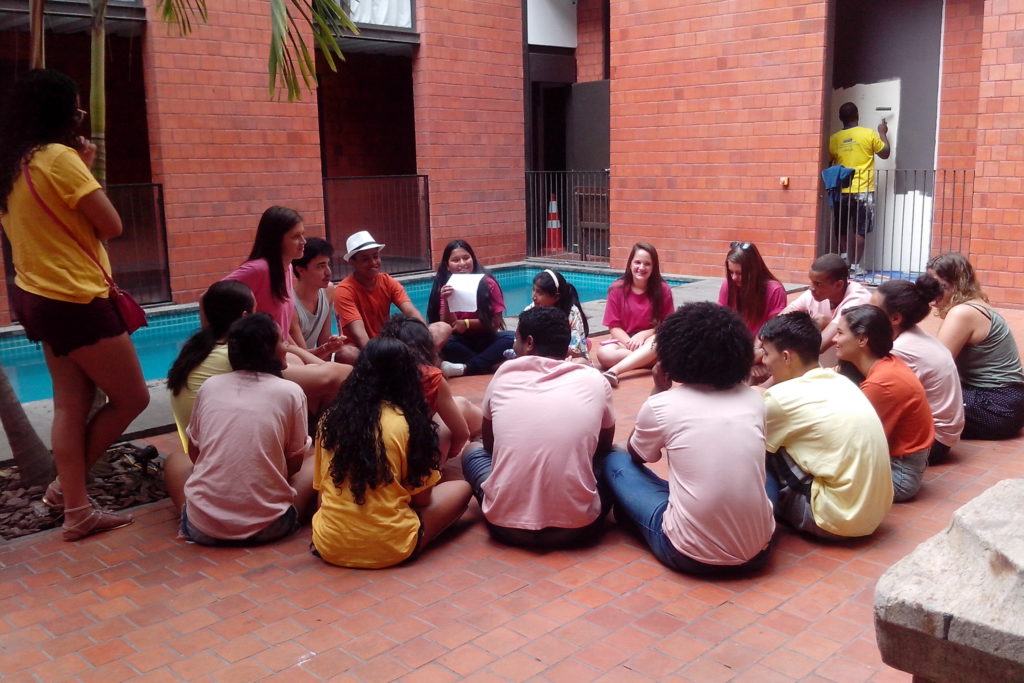
The “Si, yo te entiendo!” group met with other winners of the 2017 Design for Change Challenge held December 2-5 in Rio de Janeiro (Photo: Criativos da Escola/Design for Change)
To the students, the project was transformative. “We learned a lot. I was very shy, never talked. I was embarrassed to even talk to a teacher, and today I’m capable of teaching classes,” says Quispe. And she does it well! The proof is that her students have already expressed an interest in having more of these language and cultural activities this coming year. And other groups of students in the school are talking about organizing extracurricular activities with their friends.
“This project has the potential to shake the foundations of education: when we had the opportunity to teach and learn from the students at the same time, we were creating something new, something that breaks down barriers, crosses boundaries, and puts everyone on the same level,” says Salomão, their teacher. This was what Thais, Mariana and Jaqueline wanted: more equality and less prejudice. And they got it.
The Sí, yo te entiendo! project was one of the winners of the 2017 Design for Change Challenge. Organized by Alana in Brazil, Design for Change encourages children and young people to transform their realities, recognizing them as the protagonists of their own stories of change. The initiative is part of a global movement that started in India and is now present in 65 countries, inspiring over 2.2 million children and youngsters around the world.
Published on 01/19/2018